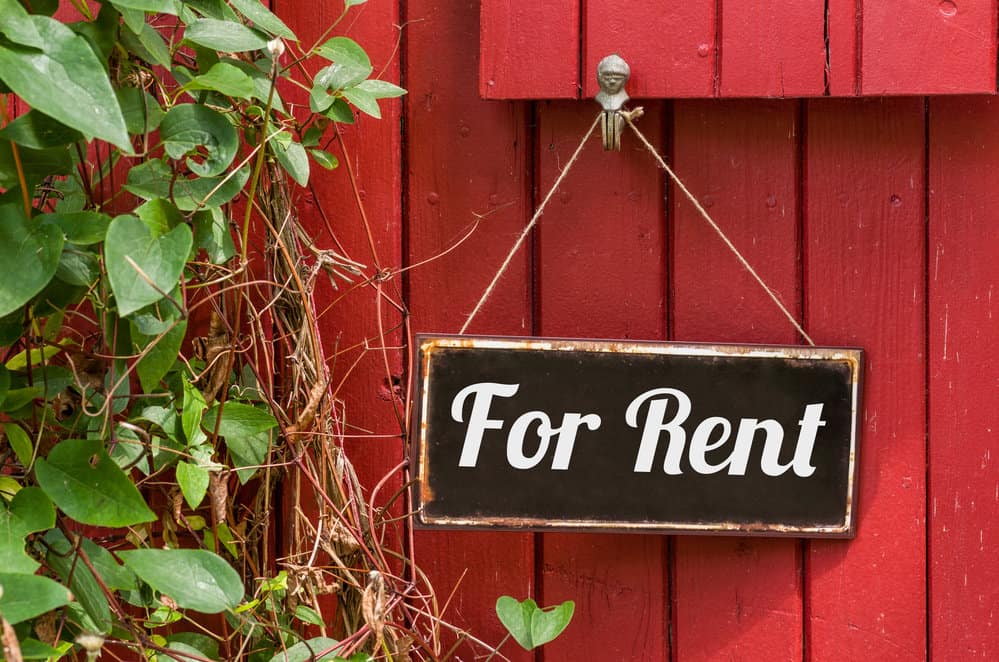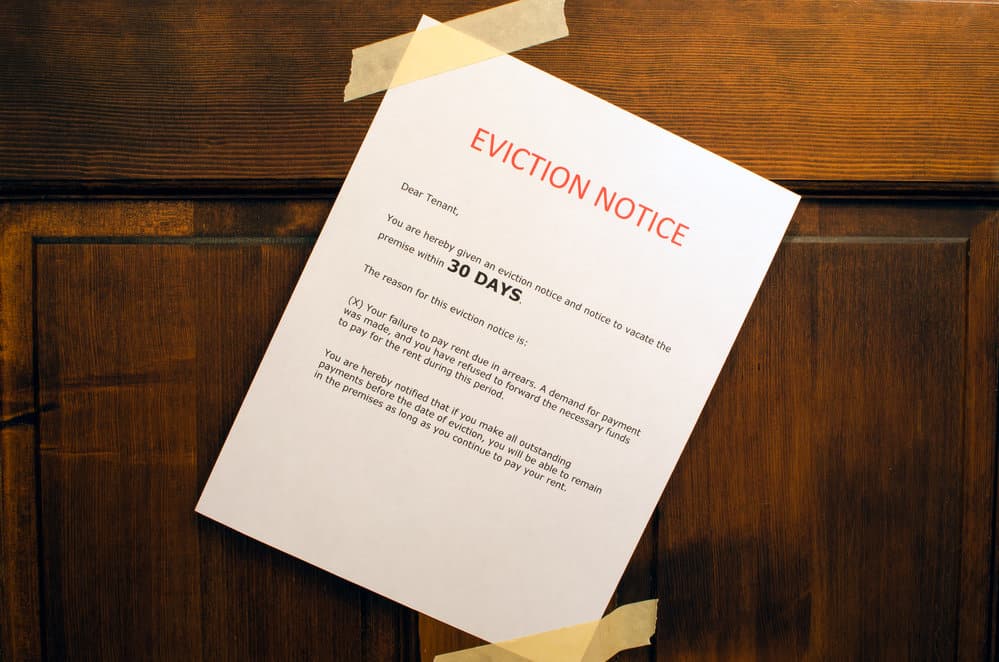Quiet enjoyment is a tenant’s right to enjoy and use property peacefully without disturbance from the landlord or other tenants. The landlord must ensure this right is upheld and not violated in rental property agreements. A breach of quiet enjoyment occurs when a tenant’s living experience is significantly and adversely affected by a landlord’s actions, interference, or negligence.
Understanding what constitutes a breach of quiet enjoyment can help tenants and landlords recognize and avoid these situations. Different states may have varying legal requirements and definitions for quiet enjoyment, so it is important to consult local laws and lease agreements to fully understand one’s rights and obligations.
Key Takeaways
- Quiet enjoyment is a tenant’s right to use a property without disturbance from the landlord or others.
- A breach of quiet enjoyment occurs when the tenant’s living experience is negatively affected by the landlord’s actions or negligence.
- Understanding local laws, lease agreements, and the rights of both landlords and tenants is crucial for avoiding breaches of quiet enjoyment.
Understanding Quiet Enjoyment
Quiet enjoyment is a fundamental principle in the landlord-tenant relationship, rooted in the common law. It refers to a tenant’s legal right to possess and enjoy real property without disturbance or interference by the landlord or other parties. The covenant of quiet enjoyment is an implied guarantee that the landlord will not unreasonably intrude on the tenant’s privacy or disrupt their peaceful occupancy.
The implied covenant of quiet enjoyment is deeply ingrained in property rentals’ legal framework. Landlords are expected to uphold this covenant, protecting tenants from disturbances that could interfere with their use and enjoyment of the property. In turn, tenants expect to experience a sense of privacy, security, and serenity while living in the rented space.
The principle of quiet enjoyment extends beyond the landlord’s actions and addresses external issues hindering a tenant’s peaceful living experience. For example, persistent noise, construction work, or even nuisances stemming from other tenants can be considered breaches of quiet enjoyment.
Landlords and tenants must be aware of their rights and responsibilities of quiet enjoyment, as violations of this covenant can lead to legal disputes. Actions that might be deemed as breaches can range from unauthorized entry by the landlord to allowing dangerous conditions to persist, or failing to address significant disruptions.
However, not every disturbance is deemed a breach of quiet enjoyment. The legal interpretation of what constitutes a breach might vary depending on jurisdiction and the specific circumstances. What is key, though, is the requirement for the landlord to ensure tenants can enjoy their homes without unreasonable interference or disruptions. Landlords and tenants can ensure a harmonious and mutually beneficial relationship by understanding and adhering to quiet enjoyment.

Breach of Quiet Enjoyment
A breach of quiet enjoyment occurs when a tenant experiences disturbances or interference in their living environment, which affects their right to peaceful and undisturbed possession of their rented property. Noise disturbances, such as loud music or noisy neighbors, are common interference that leads to breaches of quiet enjoyment.
In many jurisdictions, the concept of quiet enjoyment is enshrined in tenancy laws and rental agreements, as it is a fundamental right for renters. When excessive noise or other disturbances are a recurring issue, it may indicate that a breach has taken place. Key factors in determining the existence of a breach include the duration, frequency, and intensity of the noise or disturbance.
Some examples of breaches in quiet enjoyment could include:
- Noisy neighbors consistently playing loud music at late hours
- Construction or renovation work in a neighboring unit causing excessive noise throughout the day
- Persistent disturbances, such as a dog barking or other disruptive behavior from neighboring tenants
In cases where a breach of quiet enjoyment is identified, tenants may pursue various remedies, such as requesting that the landlord address the issue, seeking a rent reduction, or even terminating their lease in more extreme situations. Both tenants and landlords must understand and respect the principles of quiet enjoyment, as breaches can lead to strained relationships, legal disputes, and potential financial consequences.
Roles and Obligations
In a lease or rental agreement, both landlords and tenants have specific roles and obligations to ensure the quiet enjoyment of the property. “quiet enjoyment” refers to a tenant’s right to use and enjoy the rented premises free from substantial interference from the landlord or other tenants.
Landlords are legally obligated to provide and maintain premises suitable for the tenants, ensuring a peaceful and undisturbed living environment. This may involve addressing and resolving problems like noisy neighbors or maintenance issues. Furthermore, landlords should respect the tenants’ privacy – for instance, by providing proper notice before entering the property.
On the other hand, tenants have a responsibility to maintain the premises clean and orderly and adhere to the lease agreement terms, including the obligation to pay rent on time. They should also respect the rights of other tenants and neighbors by refraining from creating excessive noise or engaging in activities disturbing the surrounding community’s peace.
A breach of quiet enjoyment may occur when the landlord or tenant fails to fulfill their respective obligations, causing substantial interference with the other party’s use and enjoyment of the property. Examples of breaches include persistent noise from neighboring tenants, unaddressed maintenance issues, or a landlord’s repeated unauthorized entry into the property.
In summary, landlords and tenants play crucial roles in ensuring the quiet enjoyment of rented premises. By fulfilling their obligations and adhering to the lease agreement terms, they can minimize the risk of breaches and maintain a peaceful living environment.
Rights of the Tenant
A tenant’s right to quiet enjoyment is fundamental in the landlord-tenant relationship. It ensures that the tenant can use and occupy the property without constant interference from the landlord or other tenants. This right often encompasses privacy, possession, peace, and reasonable expectations.
Tenants have a right to privacy within the rental property. This means that the landlord must provide them with adequate notice before entering the premises, whether for maintenance, inspections, or any other reason. Generally, a 24 to 48-hour notice is considered reasonable, depending on the jurisdiction.
Respecting the tenant’s possession of the property is another crucial aspect. Landlords must uphold agreed-upon lease terms and refrain from actions that disrupt the tenant’s possession. For example, a landlord cannot evict a tenant without following legal processes or improperly seize a tenant’s belongings.
Peace is essential for any peaceful habitation. Tenants have the right to a quiet, comfortable living environment free from excessive noise and disturbances. While occasional, unavoidable noise might occur, landlords should address other tenants causing excessive noise or disturbances to ensure all tenants have a peaceful living situation.
The right to privacy also extends to the tenant’s personal information. Landlords must handle this information responsibly and carefully. For instance, they should not share a tenant’s private information with others without consent or a legitimate legal reason.
Tenants can reasonably expect their landlord to maintain the property and its facilities while ensuring essential services such as electricity, heating, and water supply. In addition, the landlord should promptly address repair and maintenance requests, ensuring the property remains safe and habitable.
By understanding and respecting these rights, landlords, and tenants can work together to foster a mutually beneficial and harmonious living environment.
Violations and Consequences
A breach of quiet enjoyment may occur when a landlord fails to maintain the warranty of habitability or interferes with a tenant’s reasonable use and enjoyment of the rental property. When this happens, tenants may have legal recourse for constructive eviction, arguing that the landlord’s actions effectively forced them out of the rental property.
In habitability violations, the landlord’s responsibilities include maintaining a safe and sanitary living environment for tenants. If a property is not habitable, the tenant may be entitled to withhold rent or make necessary repairs and deduct the cost from their rent payments. Before taking any of these steps, the tenant should provide proper notice to the landlord, detailing the issue and requesting timely repairs.
The tenant may pursue legal action if the landlord does not address the issue. Generally, the first step would be to file a complaint in small claims court, where the tenant can seek compensation for damages or request that the landlord make necessary repairs. If the violation is severe and the tenant feels it is unsafe or possible to continue living in the property, they may choose to evacuate and seek refuge elsewhere.
In some cases, constructive eviction may occur when a landlord deliberately interferes with a tenant’s ability to use and enjoy their rental property, such as by excessively entering the unit without proper notice or creating a nuisance that significantly disrupts the tenant’s peace. In these situations, the tenant may also pursue legal action by suing the landlord in court to seek financial compensation for the harm they suffered due to the landlord’s actions.
While tenants must understand their rights and legal options, they should also know that pursuing legal action can be time-consuming and stressful. Before taking any of these steps, it is advisable to consult with an attorney or legal advisor to ensure the best possible outcome.
Remedies and Defenses
When a tenant’s right to quiet enjoyment has been breached, they have several remedies available. One common remedy is to seek damages, which may include compensating the tenant for expenses incurred due to the breach, such as moving costs or damages caused by the breach. Damages can be assessed based on actual losses suffered by the tenant or as a predetermined amount agreed upon by both parties.
Another potential remedy is injunctive relief, where a court orders the breaching party to cease the activity causing the disturbance. This remedial action is typically utilized when the breach is ongoing, and the tenant seeks prevention or cessation of the harmful behavior.
In some cases, tenants may have the option to terminate the lease agreement due to a substantial breach of quiet enjoyment. However, this remedy is typically reserved for extreme circumstances or where the landlord has failed to rectify the issue after receiving notice of the breach.
As for defenses, landlords and property managers can assert several arguments to contest allegations of breach of quiet enjoyment. These defenses may include:
- Consent: If the tenant consented to the disturbance, the landlord may argue that there was no breach.
- Reasonable Accommodations: Landlords may defend against a breach claim if they reasonably tried to address the disturbance.
- No Actual Interference: If a tenant claims a violation of quiet enjoyment but cannot prove that their use and enjoyment of the property were drastically affected, the landlord may assert this defense.
It is worth noting that jurisdictions may vary in applying the rule, remedies, and defenses related to quiet enjoyment breaches. Therefore, it is essential to consult local laws and regulations and seek legal counsel when dealing with these disputes.
Property Law by States
In property law, different states have varying rules and regulations governing the concept of quiet enjoyment. This section will compare the rules in California and New Hampshire, and the Canadian province of Ontario. It is important to understand these nuances when considering real estate transactions in different jurisdictions.
In California, the state law upholds tenants’ right to quiet enjoyment of their rented premises. Any disturbance resulting from the landlord’s actions or negligence interfering with the tenant’s peaceful enjoyment can be considered a breach of quiet enjoyment. Examples of such disturbances include excessive noise, intrusive maintenance work, and persistent unresolved issues affecting the living conditions in the rented space.
New Hampshire also emphasizes a tenant’s right to quiet enjoyment within its state laws. However, the definition of quiet enjoyment may be slightly broader in this jurisdiction, encompassing even cases when the landlord unfairly interferes with the tenant’s use of common areas. If a landlord is found to be in breach of this covenant, the tenant may have the right to terminate the lease or seek compensation for damages.
Meanwhile, in Ontario, Canada, the Residential Tenancies Act sets the rules for what can be considered a breach of quiet enjoyment. According to this act, any substantial interference caused by the landlord, or even another tenant in the building, can be construed as a violation of quiet enjoyment. Tenants in Ontario experiencing a violation of this right can file a complaint with the Landlord and Tenant Board to seek resolution.
In conclusion, quiet enjoyment remains critical to property law across different jurisdictions. While California, New Hampshire, and Ontario share similarities in protecting this right, nuances in state and provincial laws may lead to differences in interpretations and consequences for landlords and tenants.
Common Interferences
Regarding quiet enjoyment, several common interferences can impact a tenant’s right to enjoy their living space peacefully. These interferences often involve neighbors, restrictions, and maintenance activities.
Neighbors can unintentionally or intentionally create disturbances that disrupt a tenant’s quiet enjoyment. Such disturbances include excessive noise, continuous loud music, or invasive activity. Addressing these issues might require a property manager or landlord’s intervention to maintain the tenant’s rights.
Restrictions on using common areas or shared facilities can also impact quiet enjoyment. For instance, if a tenant’s access to a shared laundry room, gym, or other amenity is limited or restricted without proper notice, it can be seen as a breach of quiet enjoyment. Landlords must consider how such restrictions affect their tenants’ peace and well-being.
Regarding maintenance and routine inspections, landlords must balance ensuring the property remains in good condition and respecting the tenant’s privacy. Unexpected inspections or excessive maintenance visits can disrupt tenants’ lives and breach their quiet enjoyment rights. Landlords must notify their tenants and schedule these activities at mutually agreeable times.
Lastly, while emergency maintenance might be necessary to address urgent issues like water leaks or heating malfunctions, landlords should still try to minimize the disruption to the tenant’s quiet enjoyment. Communicating with the tenant and providing clear information about the situation and repair timeline can help alleviate the interference caused by emergency maintenance.
Lease and Rental Agreements
Lease and rental agreements are legally binding contracts between a property owner (landlord) and a tenant. They outline the terms and conditions for renting a residential or commercial property. The leased premises are the physical space agreed upon in the agreement, and they may include anything from a single room to an entire building.
Commercial leases often serve as rental agreements for businesses and may have different expectations than residential leases. These expectations can include maintenance responsibilities, permitted uses of the space, and other unique terms. Both residential and commercial rental agreements generally include information such as the lease term, rental payment, security deposit, and additional fees.
Quiet enjoyment is a fundamental tenant right implied in most lease and rental agreements. It refers to the tenant’s right to enjoy and use the rental property without significant interference from the landlord or other external sources. A breach of quiet enjoyment may occur when the landlord violates this right, causing a disturbance that interferes with the tenant’s ability to comfortably live or work in the leased premises.
Several actions could constitute a breach of quiet enjoyment, including:
- Unreasonable noise or disturbances from neighboring tenants or surrounding properties
- Persistent interruptions or disruptions by the landlord, such as excessive entry into the rental property
- Failure to repair or maintain the rented premises, resulting in hazardous or unlivable conditions
- Restricting or limiting access to essential services like water, electricity, or heating.
To prevent breaches of quiet enjoyment, landlords should be mindful of their responsibilities under lease and rental agreements. Moreover, they must respect tenants’ rights and provide a secure and comfortable environment for living or conducting business.
Unusual Scenarios and Exceptions
In certain circumstances, a breach of quiet enjoyment may occur even when it doesn’t seem apparent at first. For example, unpaid rent may not seem directly related to quiet enjoyment. However, suppose a tenant is experiencing constant harassment from the property owner regarding unpaid rent. In that case, this can disturb their peaceful use of the property and violate their right to quiet enjoyment.
Reasonable time is crucial in determining whether a tenant’s quiet enjoyment has been violated. For instance, if a property owner conducts necessary repairs during regular business hours and with prior notice, the tenant is expected to accommodate reasonable inconvenience. On the other hand, if the repairs or interruptions occur at inappropriate hours without sufficient notice, this could be seen as a breach of quiet enjoyment, even if the work is essential for the property’s maintenance.
In some cases, surrendering the property to the owner in exchange for eviction or termination of the lease may lead the tenant to question whether their quiet enjoyment has been violated. However, as long as the tenant has agreed to a mutual surrender and the process has been peaceful, a breach of quiet enjoyment might be difficult to prove.
Beneficial use and enjoyment of a property refer to the tenant’s ability to use the rented space for its intended purpose fully. Unusual scenarios might arise wherein the owner’s actions might not directly interfere with the tenant’s quiet enjoyment but may limit their ability to use the property beneficially. For example, suppose an owner fails to keep common areas clean and tidy or refuses to address pest infestations. In that case, this can create an uncomfortable living environment and be considered a breach of the tenant’s quiet enjoyment.
In the realm of rental properties, both owners and tenants have rights and obligations. It is important to recognize that not all inconveniences or disturbances necessarily rise to a breach of quiet enjoyment. To constitute a violation, a persistent pattern of behavior must significantly interfere with the tenant’s ability to occupy and enjoy their home peacefully. Unusual scenarios and exceptions may arise, and each case must be carefully assessed based on its specific circumstances.
Case Law and Precedence
In examining breaches of quiet enjoyment, it is essential to consider case law and precedence to understand how courts have interpreted relevant statutes and contracts. One notable example is the case of Sanders v. Partridge (1971), where the court determined that a landlord’s interference with a tenant’s peace and privacy constituted a breach of quiet enjoyment. The court found that the landlord’s repeated intrusions into the tenant’s living space, day and night, and relentless questioning about the tenant’s personal life violated the tenant’s right to quiet enjoyment.
Statutes on quiet enjoyment vary from jurisdiction to jurisdiction but often share common principles. For instance, quiet enjoyment is typically seen as an implied covenant in most residential leases, even when not explicitly stated. This means that tenants have a right to the undisturbed use and enjoyment of their rented property without the landlord’s interference, directly or indirectly, caused by the landlord’s failure to address issues on the premises.
It is crucial to consider discrimination regarding breaches of quiet enjoyment, as landlords must not distinguish between tenants based on race, gender, religion, or any other protected characteristic. Discriminatory actions on the landlord’s part, such as evicting a tenant based on race or religion, would constitute a breach of quiet enjoyment as they infringe upon the tenant’s rights under the contract and anti-discrimination statutes.
Courts will often look to the lease terms or rental agreement when evaluating whether a hirer’s right to quiet enjoyment has been breached. Contracts that include an express covenant for quiet enjoyment provide a clear and enforceable right for the tenant to enjoy the premises without undue interference. However, even without an express covenant, leases typically contain an implied right to quiet enjoyment, which courts will enforce.
On the other hand, courts will also recognize instances when a tenant has agreed to an exclusion or limitation of their right to quiet enjoyment. For example, a lease may allow the landlord to enter the premises under certain conditions or for specific purposes. In such cases, these agreed-upon terms will generally not be considered a breach of quiet enjoyment as long as the landlord acts within the scope of the agreed-upon terms.
In conclusion, case law and precedence are important guides for determining a breach of quiet enjoyment. By examining relevant statutes, contract terms, and discrimination issues, courts have consistently upheld the right of tenants to live without undue interference from their landlords while recognizing the contractual limitations and exclusions that may apply.
Basic Services and Utilities
In rental properties, tenants have the right to quiet enjoyment, which means they should be able to enjoy their living space without interference from the landlord or other outside disturbances. This right extends to basic services and utilities, including heat, electricity, plumbing, and pest control. Not providing these essential services can be seen as a breach of quiet enjoyment, making the rental situation untenable for the tenant.
Heat is essential in maintaining a comfortable and safe living environment, especially during colder months. Landlords must provide a reliable heat source, meeting the minimum temperature requirements set by local regulations. Failure to do so could result in health and safety issues for the tenant, constituting a breach of quiet enjoyment.
Access to electricity is another indispensable utility that tenants are entitled to. Landlords must ensure that the property’s electrical systems function correctly and that tenants have uninterrupted access to electricity. If this is not provided, the tenant’s quality of life may be seriously affected, thus violating the principle of quiet enjoyment.
Plumbing services serve as a basic necessity for tenants. This includes providing running water, working toilets, sinks, and showers, and fixing any plumbing issues that may arise. Landlords are responsible for maintaining these systems and addressing any problems that may disrupt the tenant’s use of these facilities.
Pest-free living conditions are crucial to the tenant’s enjoyment of their rental property. Landlords must take appropriate measures to deter pests like rodents, insects, or other unwanted creatures. They should provide adequate pest control and promptly address any possible infestations. Failure to do so can lead to discomfort, health hazards, and violation of the tenant’s quiet enjoyment rights.
In conclusion, providing basic services and utilities is a fundamental responsibility of landlords. Ensuring that heat, electricity, plumbing, and pest control are reliably maintained is crucial to upholding the tenant’s right to quiet enjoyment within their living space.
Quiet Enjoyment Letter
A Covenant of Quiet Enjoyment Letter is a formal written communication between a tenant and their landlord addressing the breach of the tenant’s right to quiet enjoyment. The right to quiet enjoyment is an essential component of a lease or rental agreement, ensuring that the tenant can use and enjoy the property without undue disturbance from the landlord or other tenants.
In the case of a breach of quiet enjoyment, the tenant may send a letter to the landlord detailing the specific incidents that have disrupted their expected use of the property. This letter serves as a formal complaint and allows the landlord to rectify the situation.
The letter should include the following information:
- Tenant’s name and address
- Landlord’s name and address
- Date of the letter
- Reference to the lease or rental agreement that includes the covenant of quiet enjoyment
- Description of the specific incidents that constitute a breach of quiet enjoyment
- Request for the landlord to take appropriate action to remedy the situation
The letter must be clear and factual in describing events, avoiding exaggerated or false claims. Maintaining a confident, knowledgeable, and neutral tone throughout the letter is essential, demonstrating that the tenant knows their rights and expects a resolution to the issue.
Some examples of breaches of quiet enjoyment include excessive noise from neighboring tenants, ongoing construction work that disturbs daily living, constant landlord interference in the tenant’s living space, or even pest infestations that the landlord has failed to address. The tenant must document and refer to these issues in the letter, providing context and evidence where possible.
Ultimately, the purpose of the Quiet Enjoyment Letter is to protect the tenant’s right to peacefully use the property while holding the landlord responsible for ensuring a comfortable living environment. Prompt resolution of these issues will maintain a positive tenant-landlord relationship and uphold the covenant of quiet enjoyment for all parties involved.
Taking Action
When tenants’ right to quiet enjoyment is breached, they may seek legal recourse. The tenant has the right to enjoy their rented property undisturbed, and any interference from the landlord, other tenants, or external parties may constitute a breach of this right.
Taking the matter to court may become necessary if attempts to resolve the issue amicably have failed. The tenant should document all incidents that contravene their right to quiet enjoyment, such as noise disturbances or unannounced visits from the landlord. This documentation can be used as evidence in court to establish the breach of quiet enjoyment.
During the tenancy, the tenant must promptly communicate their concerns to the landlord. Open communication can help resolve many issues and may prevent the need to take legal action. Informing the landlord of the disturbances allows them an opportunity to address the problem, potentially avoiding court proceedings.
If court action becomes necessary, the tenant may seek remedies such as:
- Monetary damages: Compensation for the tenant’s loss of quiet enjoyment, which may include reimbursement for alternative accommodation or reduction in rent.
- Injunctions: Court orders requiring the landlord or other parties to cease activities that violate the tenant’s quiet enjoyment rights, such as excessive noise or intrusive behavior.
- Termination of the tenancy: In extreme cases, the court may terminate the tenancy, especially if the landlord repeatedly and willfully breaches the tenant’s rights.
It is important to remember that the tenant’s obligations under the tenancy agreement must also be met, such as paying rent on time and complying with rules. Failure to fulfill their obligations may weaken the tenant’s case in court.
Taking action to protect one’s quiet enjoyment rights is essential for a harmonious and respectful tenancy, but it is always advisable to attempt negotiation and communication before pursuing legal action.
Frequently Asked Questions
What are common examples of breaching quiet enjoyment?
Breaching quiet enjoyment can include excessive noise from neighbors, construction work during inappropriate hours, and constant disturbances from a landlord. Additionally, it may involve situations where a tenant cannot enjoy their rented premises due to harassment or invasion of privacy.
How do noise complaints impact quiet enjoyment?
Noise complaints can significantly impact quiet enjoyment by disrupting a tenant’s living environment. Excessive noise is a disturbance that interferes with a tenant’s ability to enjoy their rented property. Addressing noise complaints accordingly helps ensure that quiet enjoyment is preserved for tenants.
Do property conditions affect quiet enjoyment?
Yes, property conditions do affect quiet enjoyment. A tenant has the right to a habitable living environment, meaning the rental premises must be in good condition. If the property is in disrepair, it can interfere with the tenant’s right to quiet enjoyment, as they may struggle to live comfortably in a space that is not well-maintained.
Are eviction threats a violation of quiet enjoyment?
Eviction threats can constitute a breach of quiet enjoyment if done without proper grounds or for unlawful reasons. If a landlord continuously threatens eviction despite the tenant’s adherence to the lease terms, it may disrupt the tenant’s sense of security and enjoyment of the rental property.
Can landlord entry disrupt quiet enjoyment?
A landlord’s entry can disrupt quiet enjoyment if they enter the rented premises without proper notice or for unjustifiable reasons. By law, a landlord should provide reasonable notice before entering a tenant’s unit, except in cases of emergency. Repeated unwarranted entry by a landlord may infringe upon a tenant’s right to quiet enjoyment.
Is inadequate maintenance considered a breach of quiet enjoyment?
Inadequate maintenance can be considered a breach of quiet enjoyment if it affects the tenant’s ability to live safely and comfortably in their rented property. A landlord is responsible for ensuring the rental property remains in good condition. Failing to address necessary repairs or maintenance can lead to a breach of quiet enjoyment for the tenant.






